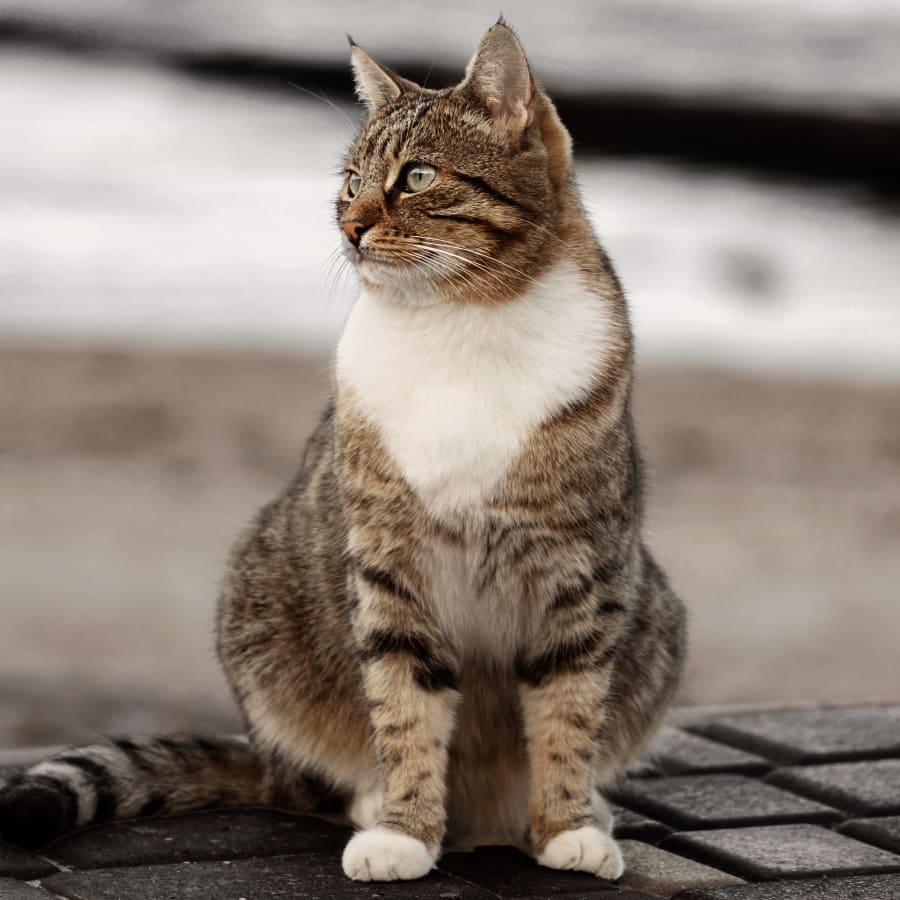Geriatric Dog & Cat Care
Senior pets require frequent preventive veterinarian care and early diagnosis during their golden years in order to help them maintain a decent quality of life as they age.
Diligent care can help extend your pet's life and good health as they get older, so it's important that they attend regularly scheduled wellness exams, even if they seem healthy.
Our veterinarians are here to help geriatric pets in Pleasant Hill achieve optimal health by identifying and treating emerging health issues early, and providing proactive treatment while we can still effectively and easily manage them.

Typical Health Problems
Due to improved dietary options and better veterinary care, companion cats and dogs are living far longer today than they have in the past.
While this is undoubtedly something to be applauded, pet owners and veterinarians are now confronted with a greater number of age-related illnesses than in the past.
We give special attention to your senior pet’s aging changes that may include decreased hearing and vision and arthritic changes which may lead to decreased movement.
Senior pets are typically prone to the following conditions:
- Joint or bone disorders
Geriatric Dogs
Arthritis, hip dysplasia, osteochondrosis, decreased spinal flexibility and growth plate abnormalities are some of the most frequent joint and bone illnesses seen in senior dogs.
Addressing these issues early is essential for keeping dogs comfortable as they continue to age.
Treatment for joint and bone problems in older dogs can range from merely lowering exercise levels to the use of analgesics and anti-inflammatory medications, as well as surgery to remove diseased tissue, stabilize joints, or relieve discomfort.
Geriatric Cats
While osteoarthritis is typically a condition we think of in older dogs, this painful condition can also affect your senior cat's joints.
While cats can experience a decrease in range of motion, the most common symptoms of osteoarthritis in geriatric cats include weight loss, loss of appetite, depression, change in general attitude, poor grooming habits, urination or defecation outside the litter pan, and inability to jump on and off objects.
- Cancer
It is believed that approximately 50% of all pets in the U.S. die from cancers. That's why it's important for your senior pet to visit their veterinarian for routine wellness exams as they age.
Bringing your geriatric pet in for routine checkups — even when they seem healthy — allows your veterinarian to examine them for early signs of cancer and other diseases that tend to respond better to treatment when caught in the earliest stages.
- Heart Disease
Senior dogs frequently suffer from congestive heart failure, which happens when the heart does not properly pump blood, causing fluid to build up in the heart, lungs and chest cavity.
While heart disease is seen less in cats than in dogs, Feline Hypertrophic Cardiomyopathy (HCM) is relatively common. This condition causes the walls of a cat’s heart to thicken, decreasing the heart’s ability to function efficiently.
- Blindness and hearing loss
Degeneration in the eyes and ears can lead to varying degrees of deafness and blindness in older pets, although this is more common in dogs than in cats.
When these problems are caused by aging, they may appear gradually, allowing elderly dogs to modify their behavior and making it difficult for pet owners to detect.
- Liver disease
In senior cats, liver disease is common and may be the result of high blood pressure or hyperthyroidism. Symptoms of liver disease in cats include loss of appetite, jaundice, drooling, vomiting, diarrhea and increased thirst.
Seizures, vomiting, diarrhea, fever, jaundice, abdominal fluid accumulation, and weight loss are all possible signs of liver disease in dogs.
If your geriatric dog or cat is displaying any of the symptoms of liver disease, veterinary care is essential.
- Diabetes
Although dogs and cats can develop diabetes at any age, most dogs are diagnosed at approximately 7 to 10 years old and the majority of cats diagnosed with diabetes are over 6 years old.
Symptoms of diabetes in dogs and cats include excessive thirst, increased appetite accompanied by weight loss, cloudy eyes and chronic or recurring infections.
Obesity is a risk factor for diabetes in both cats and dogs.
- Kidney disease
As pets age, their kidneys tend to lose their function. In rare circumstances, medicines used to treat other prevalent diseases in senior pets might induce renal damage.
While chronic kidney disease cannot be cured, it can be managed with a combination of diet and medications.
- Urinary tract disease
Our Pleasant Hill veterinarians often see geriatric cats and dogs with urinary tract conditions and incontinence issues. Elderly pets are more prone to accidents as the muscles that regulate the bladder weaken, but it's essential to recognize that incontinence might be a symptom of a larger health problem, such as a urinary tract infection or dementia.
If your senior pet experiences incontinence issues, it's important to take your geriatric dog or cat to the veterinarian for a thorough examination.
Veterinary Care for Seniors
Our veterinarians will thoroughly inspect your senior pet, ask detailed questions about their home life, and run any tests that may be necessary to get further insight into his or her general physical health and condition.
Based on the results, we will offer a treatment plan that may include medications, exercises and nutritional modifications to help improve your senior pet's health, well-being and comfort.
Routine Wellness Exams
Preventive care is essential to helping your senior pet live a healthy, happy and fulfilled life. It also gives our veterinarians the opportunity to detect diseases early.
Early illness diagnosis will assist protect your pet's physical health and discover potential health issues before they become long-term difficulties.
With regular physical examinations, your pet will have the best chance at quality long-term health.
